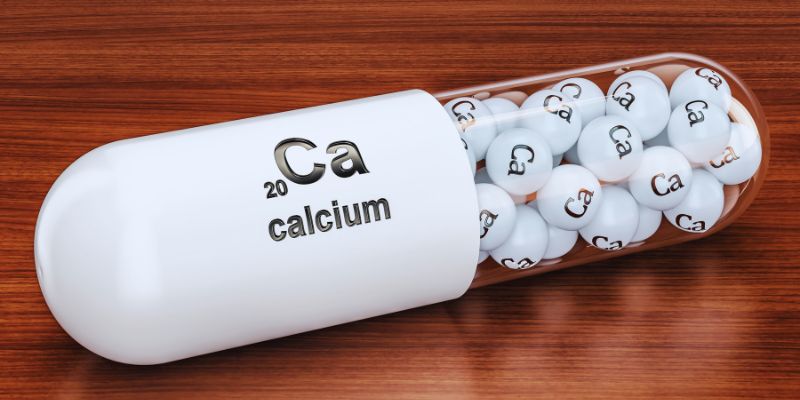What Are The Different Ways to Treat Hypercalcemia: A Comprehensive Guide
Your blood's too-high calcium content results in hypercalcemia. Your muscles, bones, and nerves all rely on calcium. Too much calcium, meanwhile, can lead to major medical issues. Among the symptoms could be confusion, weakness, and nausea. Severe forms could cause kidney problems and heart concerns. Treating hypercalcemia is determining its source and properly controlling calcium levels.
Common causes include too active parathyroid glands, some malignancies, and too high vitamin D intake. The degree and underlying reason determine the course of treatment. This guide will discuss several approaches to treating hypercalcemia. There are plenty of choices, from lifestyle modifications to cutting-edge medical procedures. Knowing these techniques will help to prevent complications and enhance general health.

What is Hypercalcemia?
Hypercalcemia is the condition whereby your blood's calcium level exceeds normal. Strong bones, muscle contraction, nerve operation, and blood clotting depend on calcium. However, too much calcium can lead to several medical issues. The disorder often results from hyperactive parathyroid glands controlling blood calcium levels. Other causes include some malignancies, too much vitamin D, kidney disease, and long-term use of medications heavy in calcium.
The degree will affect the symptoms of hypercalcemia. While mild cases cannot show symptoms, greater levels can induce nausea, tiredness, too much thirst, frequent urination, constipation, and confusion. Bone discomfort, abnormal heart rhythms, or kidney stones can all follow from severe cases. Blood tests gauging calcium levels help to diagnose hypercalcemia. Treating the disorder means restoring calcium homeostasis by addressing the basic cause.

Diagnosis of Hypercalcemia
Diagnosing hypercalcemia requires medical tests to ascertain blood calcium levels and pinpoint underlying causes.
- Blood Tests: Blood tests measuring calcium levels are the main diagnostic instrument available. Normal blood calcium levels are usually between 8.5 and 10.5 mg/dL. Above this, one has hypercalcemia. These tests can also look for associated markers, including indications of renal function like creatinine, vitamin D, and parathyroid hormone (PTH).
- Parathyroid Hormone (PTH) Test: Elevated PTH values on the Parathyroid Hormone (PTH) Test point to main hyperparathyroidism, the most common cause of hypercalcemia.
- Urine Tests: Calcium excretion can be assessed by collecting urine every 24 hours. This method distinguishes calcium overproduction from other causes, among other factors.
- Imaging Tests: Imaging examinations include X-rays, CT scans, or bone density studies, which can find problems, including kidney stones or bone loss. Parathyroid scans identify gland abnormalities.
- Medical History and Symptoms: Doctors examine medications, nutrition, and symptoms to find contributing causes, including cancer or vitamin D toxicity.
Different Ways To Treat Hypercalcemia
Hypercalcemia is the condition whereby overly high calcium levels in the blood compromise general health. Below are effective treatments for managing hypercalcemia:
Hydration and Increased Fluid Intake
One can worsen hypercalcemia by dehydration. More water lets your body get rid of excess calcium. The first step of treatment often starts with this. Doctors may counsel intravenous fluids in extreme circumstances. These fluids quickly clear extra calcium and improve renal function. Keeping hydration also helps prevent a common adverse effect of hypercalcemia renal stones. Aim to drink adequate water all through the day. Avoid sugary or caffeinated drinks since they could aggravate dehydration. Many times, basic hydration can greatly lower modest calcium levels.
Medications to Lower Calcium Levels
Control of hypercalcemia depends critically on medications. The fundamental reason determines the kind of medicine to utilize. These are some often-used choices:
- Bisphosphonates: Bisphosphonates slow down bones' disintegration, lowering the calcium output into the blood. They are sometimes used in hypercalcemia linked to malignancy.
- Calcitonin: Calcitonin decreases calcium levels by increasing calcium excretion and lowering bone resorption.
- Corticosteroids: Corticosteroids are effective for hypercalcemia brought on by high vitamin D levels or other disorders, including sarcoidosis.
- Diuretics: Some diuretics eliminate extra calcium by using urine. Loop diuretics, such as furosemide, are usually used.
Treating Underlying Causes
Long-term hypercalcemia control calls for addressing the underlying cause. In particular:
- Overactive Parathyroid Glands (Hyperparathyroidism): A commonly used treatment for overactive parathyroid glands (hyperparathyroidism) is gland removal in surgery. Most of the time, this fixes the situation.
- Cancer Treatment: Effective cancer treatments like radiation or chemotherapy usually help hypercalcemia connected with cancer.
- Vitamin D Toxicity: Reducing vitamin D supplements or quitting some medications will help to restore calcium equilibrium.
Dialysis for Severe Cases
Dialysis can remove calcium from the blood in cases of urgency. It is usually saved for life-threatening events or when other treatments are inadequate. Patients with renal insufficiency usually benefit most from this approach. Dialysis is one transient solution for consistent calcium levels. Doctors usually follow up with other treatments to identify the source. Though effective, its intrusions usually make it a last choice.
Lifestyle and Dietary Changes
Changing your diet will assist in controlling calcium levels and stop the next episodes. Here are some pointers:
- Limit Calcium-Rich Foods: Cut back on dairy products and foods enhanced with calcium.
- Monitor Vitamin D Intake: Steer clear of supplements that are too strong since they boost calcium absorption.
- Stay Active: Frequent exercise increases bone strength and controls calcium levels.
- Avoid Certain Medications: Some medications, including lithium, can cause calcium levels to rise. Talk about choices with your doctor.
Monitoring and Follow-Up Care
Control of hypercalcemia calls for regular checkups. Doctors track calcium levels using blood tests and adjust their treatments as needed. Imaging X-rays or bone scans might reveal underlying issues or complications. Patients with chronic conditions—including hyperparathyroidism or cancer—need continuous observation. Observing symptoms and test results enables one to identify early changes. Early intervention can help avert significant problems and improve quality of life.
Conclusion:
Hypercalcemia must be controlled to prevent significant medical issues. The explanation influences the therapy decisions, from hydration and medications to addressing underlying conditions like hyperparathyroidism or cancer. Severe cases would call for dialysis. Control of calcium levels also mostly relies on dietary changes and lifestyle changes. Regular monitoring guarantees treatment efficacy and helps to prevent relapses. Early identification and appropriate therapy help to avert long-term issues and significantly improve quality of life. See a healthcare professional always for tailored advice and treatment.












